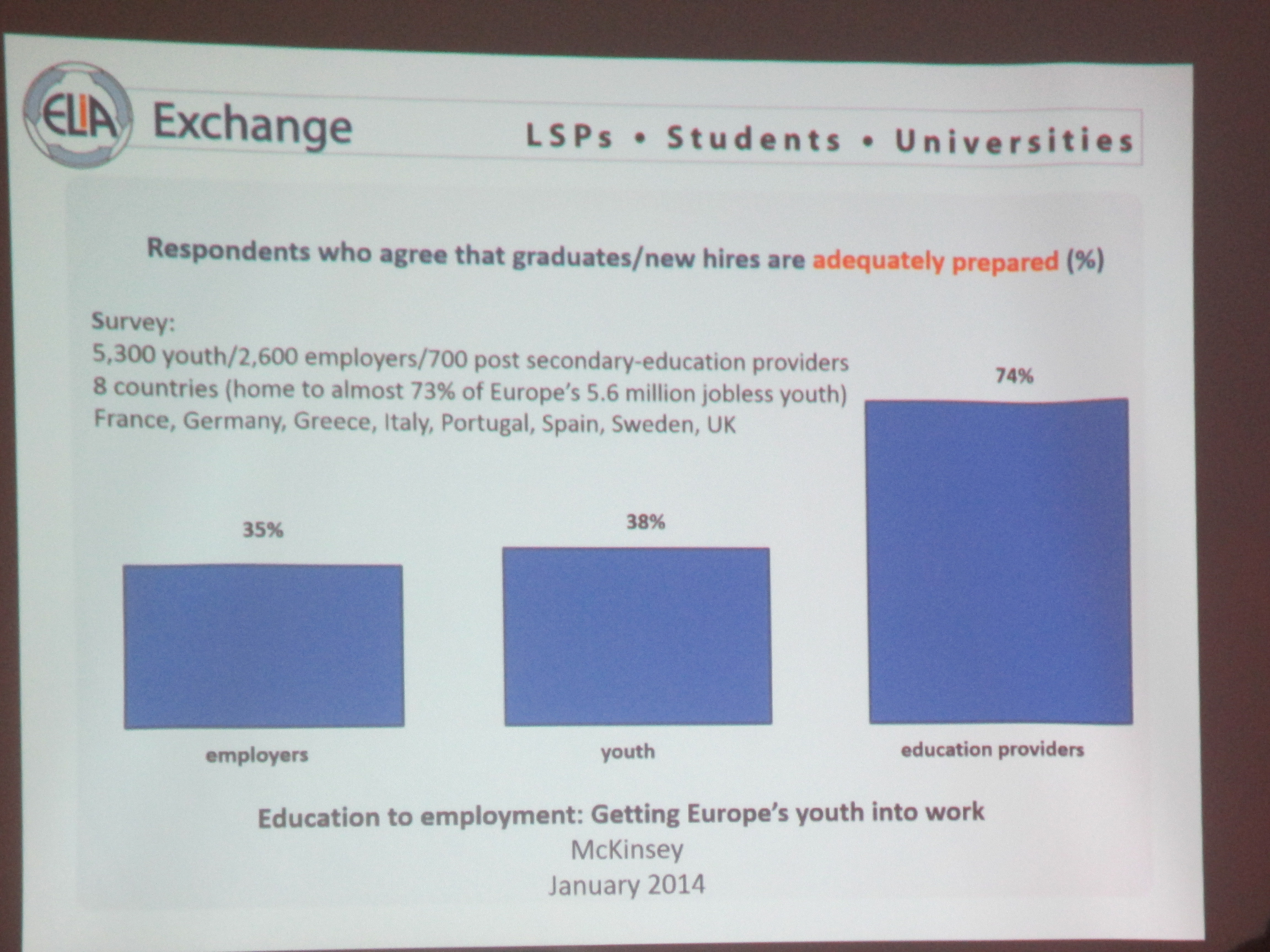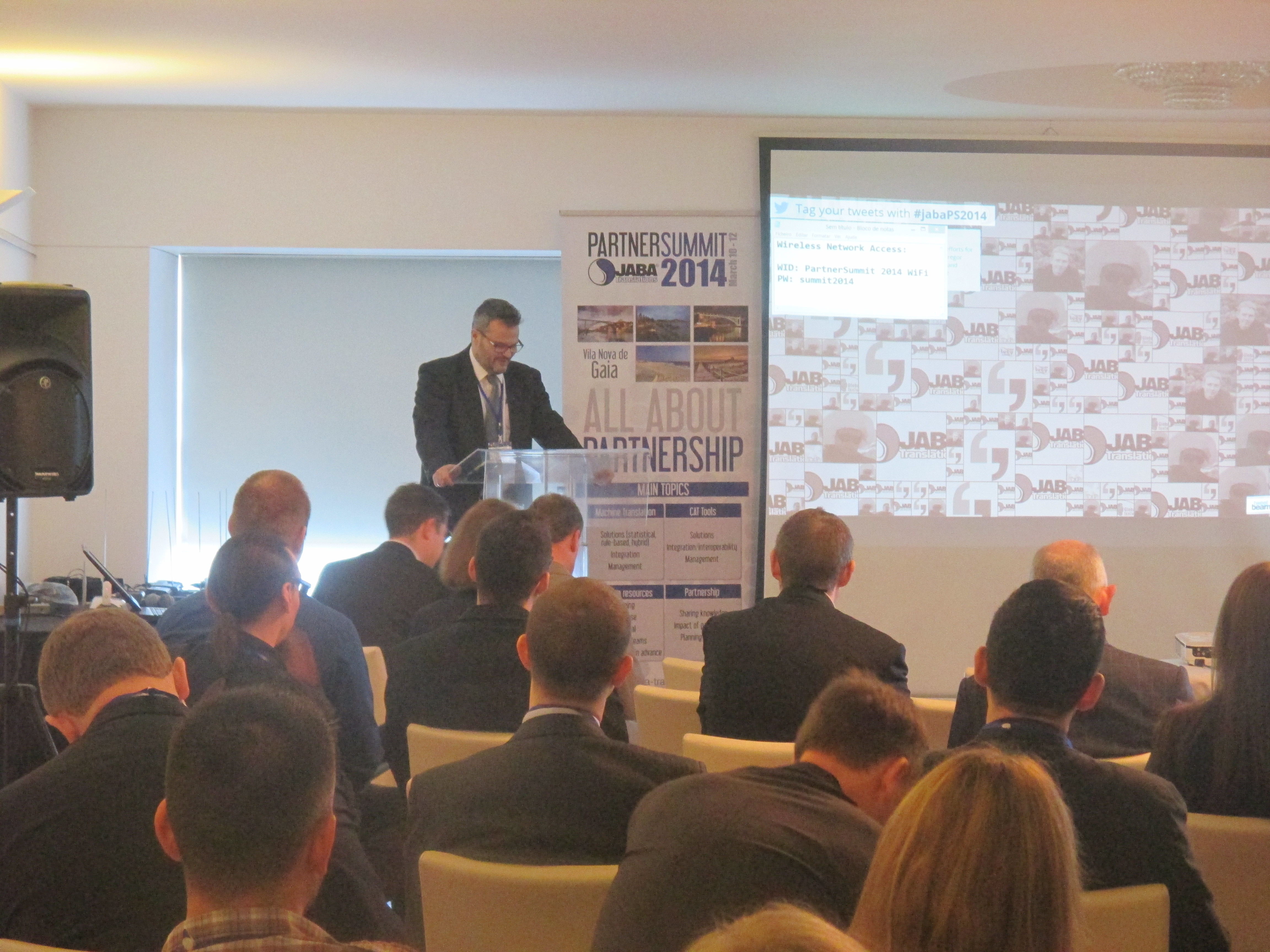ProZ Freelance Translator Virtual Conference – Translation3 Machine Translation Trends – Panel with Jeff Allen & Elia Yuste, moderated by Anas...
As a leading translation company and developer of translation technologies, Pangeanic was a sponsor in this gathering where heads of several translation companies, translation technology vendors, organizations such as ELIA and GALA and academia met to review the needs of the European translation industry. In a number of surveys carried out amongst translation companies in the past years, CAT tool training has been identified as a major gap at academic institutions training future language industry professionals. A collaboration program has been set up to improve this under the aegis of ELIA, headed by Anu Carnegie-Brown from STP Nordic, and the plan is for LSPs and language technology providers to go to academia together to demonstrate how translation is done today. Françoise Bajon, president of ELIA, provided interesting figures from general polls in Europe showing the dramatically different perceptions from employers, students and universities as to how ready graduates are for the commercial world. The view from employers and students was that 35% thought the trainers had done a good job, whereas the view from academia was that around 78% thought the students has been trained well enough. Clearly, the needs of many industries are not being met with what graduates know when they come out of university.

Different training perceptions universities students employers in Europe
CAT tools are one way to ease website localization, for example. However, few companies consider the effort required in internationalization, assuming this will only be a translation of the original text. However, most websites use content management systems or publishing programs like WordPress, Drupal and TypePad. CAT tools have developed connectors but it is impossible to connect to all such systems. Some organizations are working towards a standard, but publishing from CMS systems is still programmed and assumed as a monolingual task. The adoption of the best technical processes often also relies on cooperation between the client and the solution provider. Hans Fenstermacher from GALA pointed out that the attitude of partnership in reaching the optimised end result is essential in this area that may be one of the thorniest and most difficult challenges for the translation industry. MemoQ’s presentation was particularly enlightening as they have worked on file compatibility issues (interoperability) and Plunet’s talk on project management was also very helpful. Several companies presented their efforts and developments working with larger MLVs like Welocalize (Raymund Prins from Global textware). Stefan Gentz from Tracom and Jesper Sandberg from STP worked as joint masters of ceremonies throughout the event. Machine translation was also high on the agenda and how it can really be made to work at translation companies, with presentations from Harald Elsen, Delta International CITS, about customization for IBM Germany, from Lucy Software and Services into the Iberian languages and of course our Pangea Machine Translation system, dealing with how companies increasingly view MT as just another tool, and the argument moving quickly from adoption to either insourcing or outsourcing.
Joaquim Alves addressing the audience
Excellent organization skills and a special thanks to Joaquim Alves and his wife Manuela from JABA-Translations for all the hard work that comes with an event like this, getting together ELIA and GALA, clients and partner companies in EuropeRelated Articles
ProZ Translation Agencies Virtual Conference Machine Translation Trends Machine translation is here to stay. In this discussion panellists delve...
ProZ Freelance Translator Virtual Conference – Translation3 30 Sept 10 Empower yourself with Machine Translation! – On-demand presentation by E....


